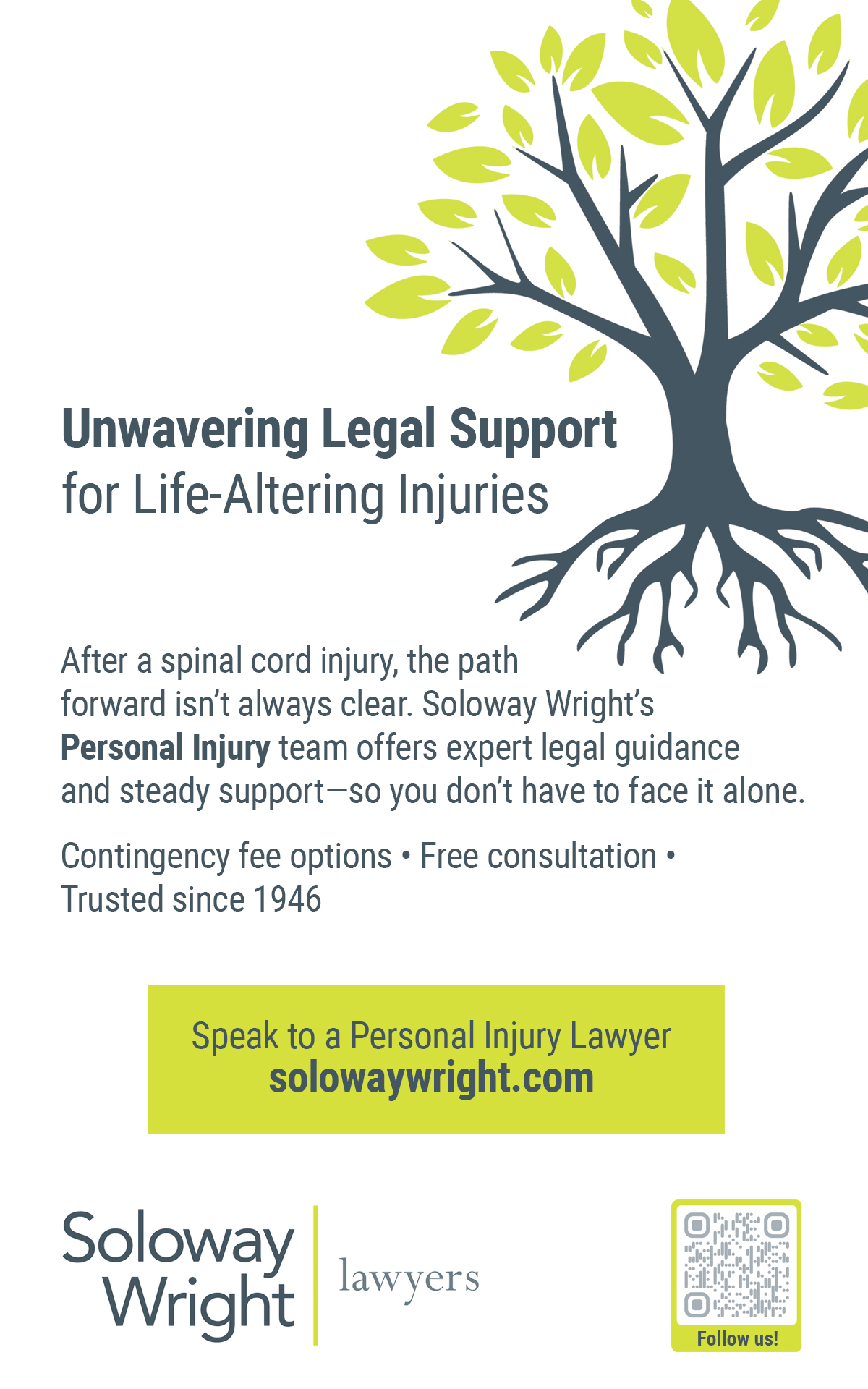Living with a spinal cord injury changes every part of your life, including your financial reality.
Whether your injury is recent or decades behind you, there are often costs that go well beyond what insurance, government programs, or one-time support can cover.
Most people with SCI experience a financial challenge at some point. Even with ODSP, insurance, and assistive programs, you may be:
- Paying out-of-pocket for equipment upgrades or repairs
- Struggling with fewer home care hours than needed
- Unable to return to full-time work but still disqualified from EI
- Facing sudden new costs like moves, dietary needs, or caregiver supports
“I thought once I got ODSP and the ramp installed, I’d be okay. But the small costs never stop — gloves, batteries, repairs, transit. It adds up.” — SCIO client
What’s Available and Why It’s Often Not Enough
If you haven’t yet, make sure you’ve looked into these foundational programs:
- ODSP: Income support and basic health coverage
- ADP: Up to 75% for mobility equipment
- RDSP: Long-term savings plan with federal grants
- Trillium Drug Program: For high drug costs not covered by ODSP
- Canada Disability Benefit: Federal government programs for working age people with disabilities.
- Local/charitable support: March of Dimes, Easter Seals (for youth), disability foundations
Common Gaps and Real-World Ways to Handle Them
The Gap
What You Can Do
ODSP doesn’t cover all home care hours
Track true usage and submit a care appeal to your OH Service Coordinator
Mobility device not covered by ADP
Combine multiple sources (ODSP, private grants, used equipment networks)
Loss of income after EI runs out
Apply for Canada Workers Benefit or explore part-time work that preserves ODSP
One-time legal expenses (e.g., tenancy issue)
Access community legal clinics or pro bono services
Assistive technology for work or school isn’t covered
Check Second Career (for retraining) or apply to Access to Success and other tech-focused disability scholarships
Working While Disabled: What You’re Allowed to Do
You can work and receive ODSP. Here’s how:
- You keep the first $1,000/month earned, with partial claw-back after that
- You may qualify for employment supports through ODSP or local agencies
Tip: If you’re on ODSP and thinking about part-time work, request a meeting with a caseworker before starting. It can prevent future clawbacks or miscommunications.
Looking Ahead: Planning on a Low or Variable Income
Even if your income is modest, you can still plan:
- Use the RDSP — even if you only contribute $25/month, federal grants will often match or exceed it
- Set up “saving pods” — separate categories for big needs like equipment replacement, travel, or dental
- Look at annuity-style disbursement if you receive a lump sum from a claim, settlement, or inheritance (this can help you avoid ODSP penalties)
Build an emergency gap fund — even $10/month adds up
When Legal Compensation Is a Pathway
If your injury was caused by a car accident, fall, workplace incident, or potential medical error, you may have the right to pursue legal compensation. Estimates place the lifetime cost of living with an SCI between $1.5 to $3 million and that’s just for basic needs. Many of these expenses fall outside traditional coverage. While it’s not a fast solution, a successful claim could provide funding for:
- Mobility equipment not covered by ADP
- Long-term attendant care
- Loss of future income
- Home modifications
- Therapy and mental health care
- Education and retraining
- Compensation for your family members for loss of care, guidance, and companionship
What to Expect If You Explore Legal Compensation
If you choose to explore compensation through legal channels, here’s what to know:
- Time matters: There are strict legal deadlines to begin a claim.
- Evidence helps: Medical records, expenses, and documentation strengthen your position.
- Support is available: Many professionals offer free consultations or contingency-based services (no upfront cost).
- It takes time: A typical case may take 3–5 years to resolve.
- The right fit: You will be working closely with your lawyer for a long time. Make sure you choose a lawyer who makes you and your family feel comfortable/heard.
- You’re still in control: Seeking information doesn’t mean committing to a lawsuit.
Tip: Keep a daily journal, save receipts, and ask your care providers for written summaries of your rehab needs. These can all help if you ever decide to take legal steps.
This is one potential path, and it won’t apply to everyone. But if you think it might, it’s worth getting advice early. Some professionals offer free consultations and contingency-based services, so there’s no cost unless your case moves forward.
You Are Not Alone in This
No one builds a recovery plan by themselves. SCIO’s team is here to help you:
- Connect with financial resources
- Understand your ODSP or insurance rights
- Navigate equipment funding or loan programs
- Explore employment or retraining that fits your goals
- Find legal information or support when needed
Contact SCIO Service Navigation to get started with 1:1 support.
Partners in Financial Health
At Meridian, we’re focused on driving Community resilience – among our Members, our employees, and the communities in which we live. We achieve this using a variety of tools, including investments in leading Community partners, employee donation matching, and facilitating employee volunteering.
Here’s how we’re approaching this important work:
- Perspective: we invest in Thought Leadership, partnering with organizations striving to overcome the key challenges facing our communities, now and in the future. Investing in this research positions Meridian to support the next generation of Community change-makers.
- Planning: we invest in organizations that develop programming and share best-practices rooted in the latest research. This allows us to scale our impact, empowering organizations to broaden their reach and touch more lives.
- Preparation: finally, we invest in organizations delivering programs and services directly to the community. From supporting community food centres to enabling the delivery of financial literacy workshops, Meridian is there to support Canadian change makers wherever they’re making a difference.
To learn more, please visit us at www.meridiancu.ca/ready-for-what-if



